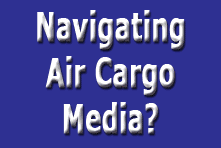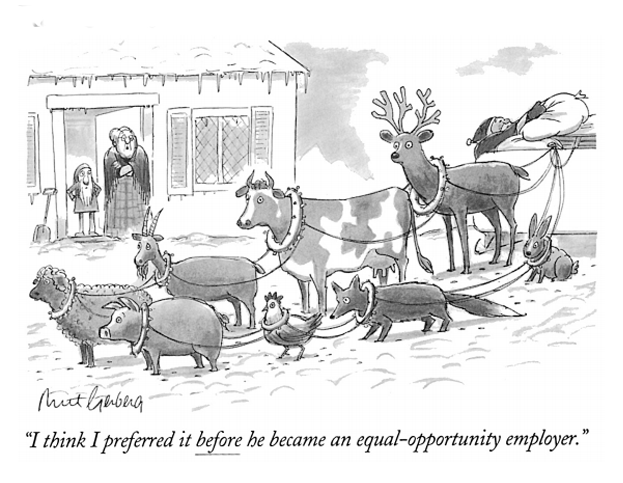
  e
didn’t mention if he was an Elvis fan, but Sebastiaan Scholte, CEO
of Netherlands-based Jan de Rijk Logistics, believes the air cargo industry
would benefit from a little less conversation, and a little more action
(please). e
didn’t mention if he was an Elvis fan, but Sebastiaan Scholte, CEO
of Netherlands-based Jan de Rijk Logistics, believes the air cargo industry
would benefit from a little less conversation, and a little more action
(please).
Often after Elvis would finish a concert the audience would stomp and
clap and carry on hoping that “The King” would return to the
stage for an encore.
That led to the regular announcement to
the crowd that it was all over:
“Elvis has left the building!”
Following the metaphor, we wonder if the
same can be said of air versus ocean shipping?

The straight-talker is a supporter of FIATA, TIACA,
IATA, and GACAG, all of which are doing a “great job,” but
he would like to see more firm, coordinated steps to improve the global
operating environment.
“It is easier said than done, but
there is a lot of talking in this industry and sometimes we fail to deliver
and execute,” he said. “In general, the air cargo industry
is still very conservative.
“Obviously, with so much regulation,
customs, and government interference, it is not always easy to innovate.
But the times are changing. The only certainty is that there will be uncertainty
and the ones who will emerge stronger are the ones most adept at change.
“Hopefully we can see more positive
change in the coming years, otherwise we will be wondering in a couple
of years from now why the modal shift to sea has increased again.”

Jan De Rijk’s air cargo business,
primarily represented by its road feeder service network in Europe for
airlines, represents around 40 percent of the business at present. “This
share has been higher in the past, mostly because we have grown faster
in other areas like intermodal, warehousing, and contract logistics,”
said Scholte.
“It is not the most profitable business
unit, since the volumes have declined and we are faced with long waiting
hours at airports, which increase our fixed unit and labor cost.
“Obviously we have felt the effects
of the crisis as well, which have resulted in especially less density
in our network.

“Jan de Rijk Logistics has grown countercyclical,
gaining market share, but we have also noticed that the average weight
per shipment has decreased.”
The company is looking at ways to grow its
business globally, mainly via its aero engine services, contract logistics,
and road feeder service solutions, as well as continuing to expand its
one-stop-shop service to offer not only trucking, but also off-line handling.
“This could be interesting in particular
for passenger airlines with a limited amount of airports served in Europe
that need a European wide coverage,” he said.

Scholte believes there have been two main
drivers of modal shift away from air cargo in recent years. Firstly,
the economic crisis has put continuous pressure on cost. And secondly,
low interest rates, also of course a direct result of the crisis, have
resulted in a lower cost of inventory for products with a traditionally
high value density.
However, he said there has been modest improvement
in European volumes in the last two months, although he does not think
this will be enough to have a major impact on current overcapacity making
it difficult for yields to improve in the short term.
The removal of trade barriers either through
global agreements or through a new Free Trade Agreement such as the one
mooted between the EU and U.S. could prove beneficial, however. “I
am a firm believer in trade and open markets,” he said. “Not
only does our sector benefit from more open trade, but also the end consumers.
“Through more market liberalization
the world has less poverty, and emerging markets have grown. Between 1981
and 2001 China lifted 680m people out of poverty. Since 2000, the acceleration
of growth in developing countries has cut the numbers in extreme poverty
outside China by 280m. The United Nations has even predicted that the
forces of globalization may have the power to eradicate poverty in the
21st century. So, obviously, a trade deal between the US and Europe would
be beneficial for our sector and growth in general.”

Scholte is particularly keen to offer pharmaceutical
shippers more premium services that include air, not least because he
believes this is a business driven more by changing demographics rather
than economic cycles, and is also less seasonal than other commodities,
keeping demand steady.
“However,” he said, “it
is also the commodity that has experienced the biggest modal shift from
air to sea, and not only due to cost pressure but also because of quality
issues.
“In our recent cool chain association
event we—meaning shippers, forwarders, airlines, airports, and handlers—concluded
that there is a need for a global standard that covers the whole air cargo
supply chain for pharma.
“Some shippers complained that there
is not enough visibility and that there is a need, for example, for an
independent database where it is clearly stipulated which airports, handling
agents, etc., have pharma capabilities.
“Unfortunately many players in the
supply chain are faced with enormous cost pressures making it sometimes
difficult to make necessary investments to guarantee the quality.”
SkyKing
|






